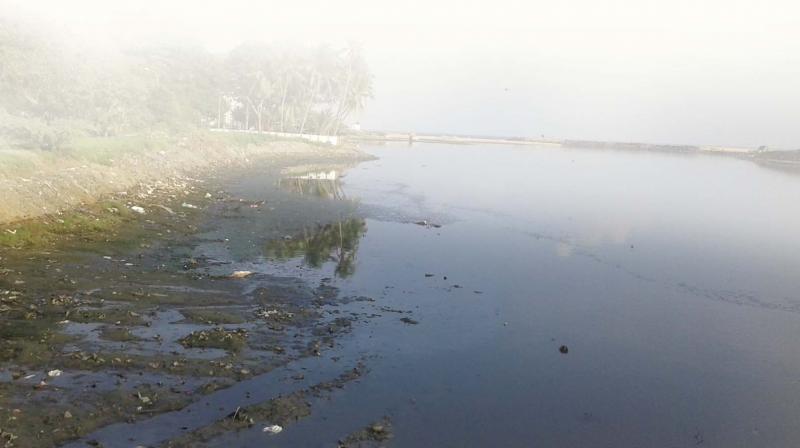Implement Polluter pays' rule, says Green Tribunal
NGT takes step against pollution of water bodies.

Chennai: The National Green Tribunal, New Delhi, which slapped a fine of '100 crore on the state government for its failure to protect the water resources in Chennai, how the state had failed to protect the three rivers in the city.
On Many 27, 2014, the tribunal considered the photographic evidence on the level of pollution and noted apathy of the Chennai corporation. It had initiated proceedings based on an article published in a daily in October 2013.
The tribunal said Rs 600 crore had been made available for the restoration project but it had made negligible progress since the time of its launch in 2015.
The pollution in the Cooum was the result of public apathy and disposal of solid waste on the river bed. This impacted the water quality downstream and the oxygen levels in the water. When it enters the city, the river becomes an urban sewer, receiving municipal and industrial wastewater and solid waste (especially near bridges) and refuse from slums.
In July 2014, a status report was prepared. On May 26, 2015, the issues considered included removal of encroachments by the corporation and the PWD, solid waste management, creation of parks and waterways along with banks of the river.
A time schedule for removing the encroachments was given by the PWD. The Chennai River Restoration Trust (CRRT) mentioned projects which included treatment of the sewage being discharged by the residential colonies, removing encroachments and other restoration projects.
In February 2016, the Tribunal identified five educational institutions polluting the river - Dr MGR University Research & Educational Institute in Maduravoyal, the Thai Moogambigai Dental College & Hospital in Mugappair, the Thai Moogambigai Polytechnic College in Nerkundram Village in Tiruvallur District, the gents and ladies hostels in phase II of Dr MGR University Educational and Research Institute University Phase II as well as its first year block in Adyalampattu Village in Tiruvallur district.
The educational institutions were found to have been polluting the river for up to 26 years, and authorities had taken no action. They were required to pay a sum of '40 lakh in the first instance to the CRRT.
In January 2017, the tribunal noted that illegal structures were being constructed without permission of the Costal Zone Management Authority. In September 2018, it said the pace at which the work was being undertaken has been far from satisfactory.
A month later, the NGT sought a report on removal of encroachments from waterways, among other things. Calling the reports submitted “vague” and “without tangible action”, the bench found that of the 26,300 encroachments, only 408 had been removed. The chief secretary was asked to look into the matter and the PWD fined '2 crore.
On February 11, the government filed an affidavit stating that the eco-restoration plan had been prepared for restoration of the Cooum river, to be implemented in three phases in eight years. Major activities will be completed in three years, the government said, and sanctioned '604.77 crore for 60 sub-projects.
Stating that the problem had been acknowledged by the authorities starting from 2014, the tribunal said they had not been vigilant in preventing the pollution of the river and failed to observe the precautionary principle for protection of the environment.
The authorities have not fully implemented the ‘polluter pays’ principle, the tribunal said.
The local body, which is under constitutional obligation to maintain hygiene and prevent untreated sewage being discharged into water bodies, failed in its duties for a long period. The order dated February 6, 2015, shows that untreated effluents were being discharged into the Buckingham Canal by not only private persons but also by government undertakings.
The bench said the apathy and failure of the state and its authorities in protecting the environment for many years was clear from the facts. It is the alienable responsibility and duty of the state to provide clean environment to the citizens. Such duty cannot be linked to any other duty. Inaction should not be justified on the ground of non-availability of budget or other commitments, it said.
It said pollution deprived the citizens of their most essential need of potable water. Failure to provide equipment to treat sewage and permitting untreated sewage and pollutants in water bodies was a criminal offence under the law. Anyone permitting or being party to it is liable, the tribunal said.

